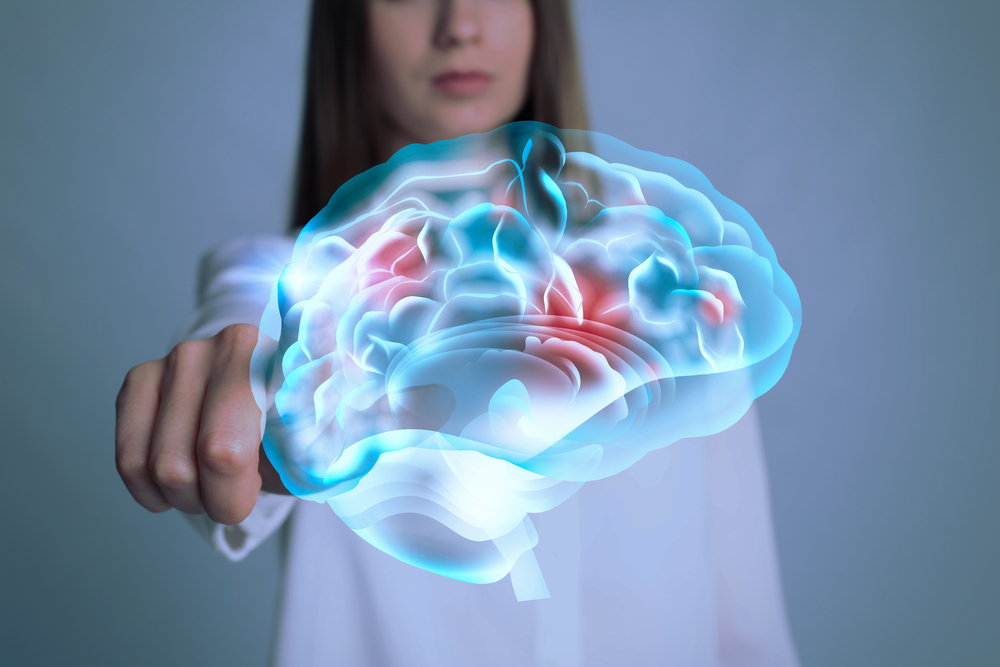
Astaxanthin: Crossing Barriers in Brain Health
June marks Brain Awareness Month, a good time to explore how nutritional supplementation can help preserve cognitive function. Astaxanthin is drawing attention for its unique properties that make it especially promising for brain health. What sets astaxanthin apart from many dietary antioxidants is its ability to cross the blood-brain barrier (BBB), enabling direct activity within the central nervous system (CNS).
Most dietary antioxidants never make it into the brain because of the BBB. This specialized defense system protects the central nervous system (CNS) from harmful substances. Astaxanthin is different. Thanks to its lipophilic (fat-loving) structure and small molecular size, astaxanthin can cross the BBB and accumulate in key brain regions, including the hippocampus and cerebral cortex, both areas central to memory, decision-making, and learning.
Once inside the brain, astaxanthin supports cognitive function by:
- Supporting healthy blood flow and circulation.
- Reducing neuroinflammation, which can damage neurons over time.

Keep It Flowing
To keep neurons healthy and functioning, the brain relies on steady blood flow to deliver a constant supply of oxygen and nutrients. Oxygen is carried by red blood cells, bound to iron-containing hemoglobin, which is vulnerable to damage from oxidation. As we age, the body’s antioxidant defenses weaken, leading to the buildup of phospholipid hydroperoxides (PLOOHs) in the lipid membranes of red blood cells. Elevated levels of PLOOHs are associated with reduced blood flow and oxygen delivery to the brain; factors linked to a higher risk of dementia.
In one study, 15 men and 15 women were randomly assigned to receive either 0 mg, 6 mg, or 12 mg of astaxanthin daily for 12 weeks. Results showed that those who took astaxanthin had significantly lower PLOOH levels in their red blood cells and plasma compared to the placebo group. This suggests that astaxanthin helps protect red blood cells from oxidative stress and lipid peroxidation, potentially supporting better oxygen delivery and brain nourishment as we age.
The Brain’s Bodyguards
Microglia are specialized immune cells found only in the brain and spinal cord, making up about 10–15% of all cells in the central nervous system (CNS). Think of them as the brain’s dedicated bodyguards and custodians; they’re constantly on patrol, clearing away debris, removing dead cells, and defending against infections.
In a healthy, young brain, microglia operate with precision. They regulate inflammation and help maintain a balanced environment by carefully managing the release of signaling molecules. However, by midlife (typically in the 50s), microglia can begin to lose this tight control. As they become dysregulated, they may enter a “primed” or semi-active state, in which they overreact to minor threats. In this state, microglia may leak reactive oxygen species (ROS) and pro-inflammatory signals, contributing to chronic inflammation.
This dysfunctional activity activates NF-κB, often referred to as the “master switch” of inflammation. Once triggered, NF-κB drives the production of inflammatory proteins, including glial fibrillary acidic protein (GFAP), a marker linked to early neurodegenerative changes and cognitive decline.
Research suggests that astaxanthin may help mitigate this process. In one study, astaxanthin was shown to reduce ROS accumulation and inhibit NF-κB activation in microglial cells. As a result, it lowered the production of inflammatory proteins and helped prevent neuronal cell death. These protective effects stem from astaxanthin’s dual role as a potent antioxidant and a regulator of inflammatory pathways in the brain.

Brain Power
The hippocampus plays a critical role in forming new memories and supporting cognitive function. In daily life, mental and physical stress can take a toll leading to fatigue, slower reaction times, and an increased likelihood of errors.
Research suggests that AstaReal® Astaxanthin may help counter these effects. In one study, 10 participants took 6 mg of astaxanthin daily for 28 days. When tested with fast-moving visual stimuli, the astaxanthin group demonstrated quicker reaction times compared to the control group.
In another study, participants who took 12 mg of AstaReal® Astaxanthin (and vitamin E) daily for 8 weeks reported less mental and physical fatigue when faced with cognitive and physical challenges. They also showed improvements in subjective measures like clarity of thought and motivation.
Keep in Mind…
Oxidative stress, driven by poor blood flow and the damaging effects of ROS, is widely recognized as a key contributor to cognitive decline.
AstaReal® Astaxanthin stands out for its ability to cross the blood-brain barrier, where it helps improve cerebral blood flow and supports the health of red blood cells, enhancing oxygen delivery and nourishment to brain tissue. It also helps protect neurons from oxidative damage, promoting their resilience under stress.
Clinical research also suggests that natural astaxanthin can support memory and enhance various aspects of cognitive performance, including choice reaction time, mid-term episodic memory, and spatial attention.
References:
- Medoro A, Davinelli S, Milella L, Willcox BJ, Allsopp RC, Scapagnini G, Willcox DC. Dietary Astaxanthin: A Promising Antioxidant and Anti-Inflammatory Agent for Brain Aging and Adult Neurogenesis. Mar Drugs. 2023 Dec 16;21(12):643.
- Carvalho C, Moreira PI. Oxidative Stress: A Major Player in Cerebrovascular Alterations Associated to Neurodegenerative Events. Front Physiol. 2018 Jul 3;9:806.
- Seya, Y. et al., Japanese Journal of Physiological Anthropology. 2009; 1 4(2): 59-66
- Kim, Y.H. et al., International Immunopharmacology. 2010; 10(12): 1560-72
- Katagiri, M. et al., J Clin Biochem Nutr. 2012; 51(2): 102-7
- Nakagawa, K. et al., British Journal of Nutrition. 2011; 105: 1563-1571
- Polotow, T.G. et al. Mar. Drugs. 2015; 13: 6117-6137
- Yook, J.S. et al., Mol. Nutr. Food Res. 2016; 60: 589-599
- Hongo et al., Japanese Pharmacology & Therapeutics. 2017; 45:61-72
Next Article

Current Newsletter

